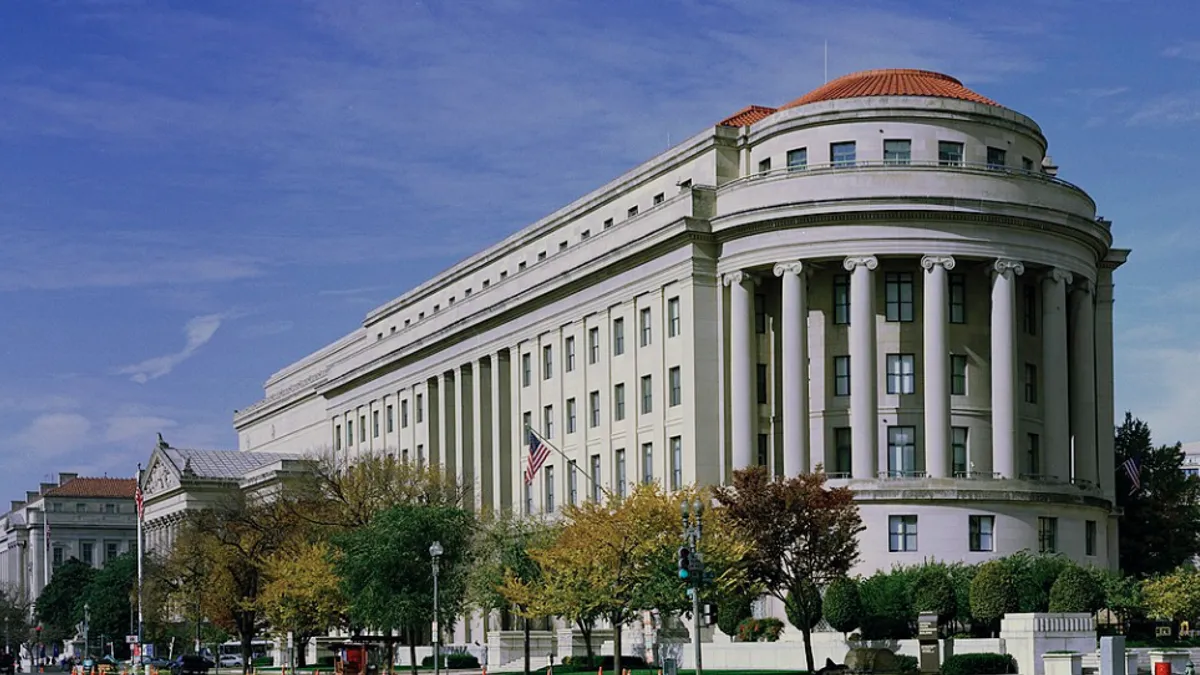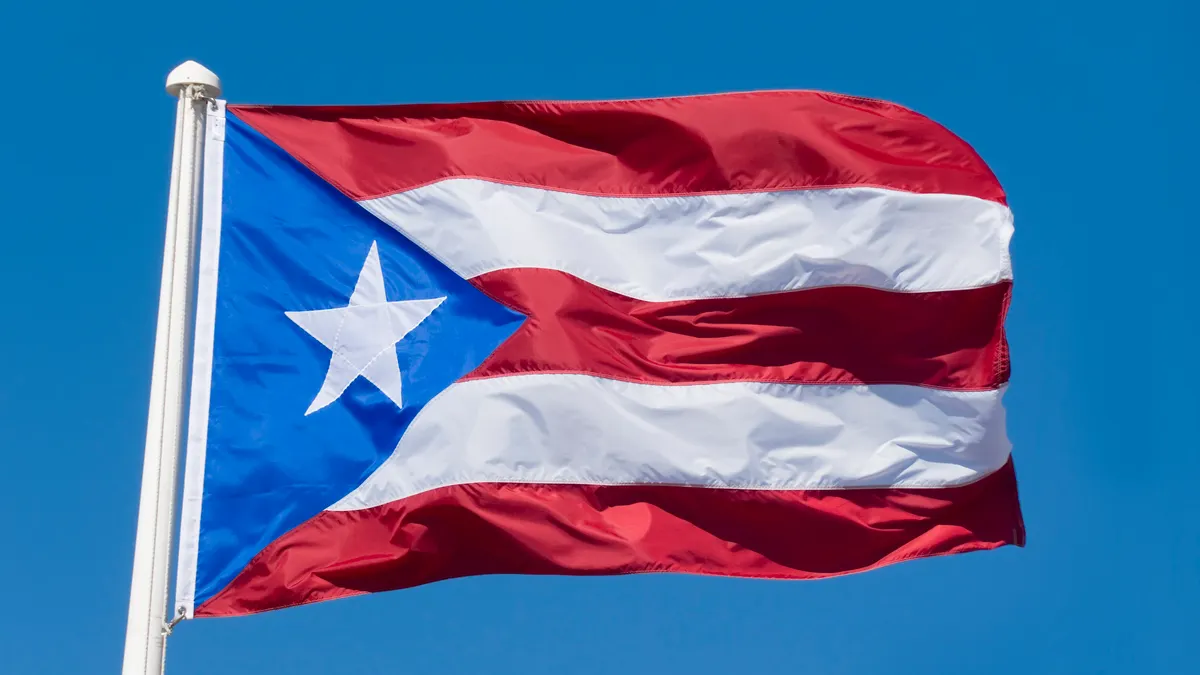The one-two legal punch in May of a U.S. Federal Trade Commission suit and an unfavorable Supreme Court decision has been a headache for Amgen. But from an industry perspective, the impact could be much bigger and long term.
First, the FTC filed a lawsuit May 16 to block Amgen's $27.8 billion acquisition of Horizon Therapeutics, which was the largest pharma deal announced last year. The problem, according to the trade regulator, is that Amgen's current slate of blockbuster drugs could be used to package Horizon's treatments into insurance monopolies.
Then, just two days later, the Supreme Court decided against Amgen in a case that pitted the company against Sanofi and Regeneron. Amgen's position was to protect patents covering the PCSK9-blocking cholesterol drug Repatha against infringement from a similar acting drug. In the complicated case, the court concluded that Amgen did not adequately include sufficient instruction in the patent to provide a "road map" for other companies developing drugs in the same class.
Amgen's legal fights aside, these institutional crackdowns could be detrimental to the future of drug development and dealmaking, according to industry experts. At risk is the innovation that drives biopharma forward along with the predictability that allows for that machinery to continue churning.
Fighting monopolies, forcing hands
The FTC sees the action against Amgen as a battle over high drug prices driven by monopolistic mergers.
"The FTC’s first challenge to a pharmaceutical merger in recent memory … sends a clear signal to the market: The FTC won't hesitate to challenge mergers that enable pharmaceutical conglomerates to entrench their monopolies at the expense of consumers and fair competition," said FTC Bureau of Competition Director Holly Vedova in a statement from the regulator.
"Companies won't know if they're playing chess, checkers or basketball."
Arda Ural
Americas industry markets leader, EY
Amgen and Horizon both, for their parts, have committed to completing the acquisition, indicating in their statements that the FTC's fears of bundled payer contracts are "speculative" and merely a "theory." They said that there are no plans to use their combined effort in that way.
Often, the FTC's concerns surround antitrust issues rather than bundling, said EY Americas industry markets leader Arda Ural. For example, when Bristol Myers Squibb pursued its acquisition of Celgene in 2019, the FTC required the pharma giant to divest its immunology blockbuster Otezla due to similar immunology prospects in Celgene's pipeline. (Amgen purchased Otezla for $13 billion.)
Overall, the FTC has sought to block 58 biopharma deals in the last 10 years, which is 4% of the total 1,400 deals greater than $100 million, according to Ural's analysis. The main reason for objections were around antitrust threats, and the majority of blocked deals were eventually completed after addressing the FTC's concerns.
In Ural's view, the "unproven hypothesis that M&A leads to higher drug pricing" is a weak keystone for regulatory action in the case of Amgen's deal.
"This type of regulation isn't giving anyone any pricing power — it's just disrupting the internal capitalist balances of the market by intervening and then causing unintended consequences," Ural said. "Because if you intend to crush this industry, you are crushing America's competitive advantage in the world."
Another megadeal that could now be in the FTC's crosshairs is Pfizer's pending $43 billion acquisition of Seagen, upping the stakes of what the regulator is trying to accomplish.
Still, the FTC's efforts in Amgen's case are viewed as an unprecedented move against acquisitions that do not contain concrete antitrust concerns, Ural said. Even though the FTC has implied it would be stricter with pharmaceutical deals, this type of intervention has introduced a threat of unpredictability to the industry.
"The FTC is evolving," Ural said. "You're creating asymmetry in the market through regulation, and asymmetry means somebody's going to lose — the single most important thing for any executive to operate with pace and certainty is predictability, and if you take that predictability away, it becomes difficult to operate a business."
When the rules keep changing, angst and uncertainty prevail, he said.
"Companies won't know if they're playing chess, checkers or basketball," Ural said.
The timing here is critical for Amgen and its Big Pharma peers who face a wave of patent cliffs in coming years that will require M&A to make up for lost revenue. Between $200 billion to $300 billion is at risk before 2026 due to blockbuster biologics losing their market exclusivity, according to EY estimates.
"It couldn't come at a worst time," Ural said. "We have been forewarning about this looming massive biologics patent cliff — and you need to make up for that revenue to be able to afford more R&D."
For the pharma industry, M&A isn't just about consolidation, Ural argued — it's the lifeblood of an extremely technical and fragmented area of innovation.
"What Big Pharma does best is take an asset that is hopefully scientifically sound and put it through late-stage clinical trials, which require a lot of capital and operational savvy," Ural said. "We're not designing sneakers or designer bags — you bring innovation in-house through acquisitions."
The innovation dilemma
The future of innovation is also a concern in Amgen's other legal battle, which saw the Supreme Court strike down their arguments that Sanofi and Regeneron infringed upon patents for Repatha, said Kisuk Lee, a principal IP attorney at the law firm Harness, Dickey and Pierce.
"This is really disappointing news for innovator companies, but it's good news for generic companies," Lee said. "It's a game changer."
Amgen argued that blocking the PCSK9 gene was in and of itself protected by an overarching patent. But Justice Neil Gorsuch’s opinion from the unanimous court decision conveyed that Amgen cannot use a broad patent to cover every antibody that binds to that gene. While this allows generic companies to use any of the thousands of potential antibodies to make their own PCSK9 blockers, it could disincentivize companies that seek to find new ways to treat other conditions, Lee said.
“This is really disappointing news for innovator companies, but it’s good news for generic companies.”
Kisuk Lee
Principal IP attorney, Harness, Dickey and Pierce
And the precedents used in the case were quite outdated, some by well over a hundred years.
"In this case, there are five Supreme Court precedents, and all of them are really, really old technology, three of them from the 19th century," Lee said. "We're talking about Morse's telegram, Edison's lamp, starch glue — and biologic therapies didn't even exist 20 years ago."
As the court saw it, Edison could not patent the concept of electricity when he invented the lightbulb — in the same way that Amgen could not patent a spot on a gene.
But filing patents for thousands of antibody possibilities is both scientifically and financially limiting, incurring huge costs for the innovator side, which could put a damper on the kinds of drugs that make it to the development table, Lee said.
Amgen still has other patents that stand for Repatha, but expressed dissatisfaction with the court’s decision.
"Amgen is disappointed in the outcome, but the company will continue to fight for patent laws and policies that provide meaningful patent protection needed to foster breakthrough innovation," an Amgen representative said in an email.




















